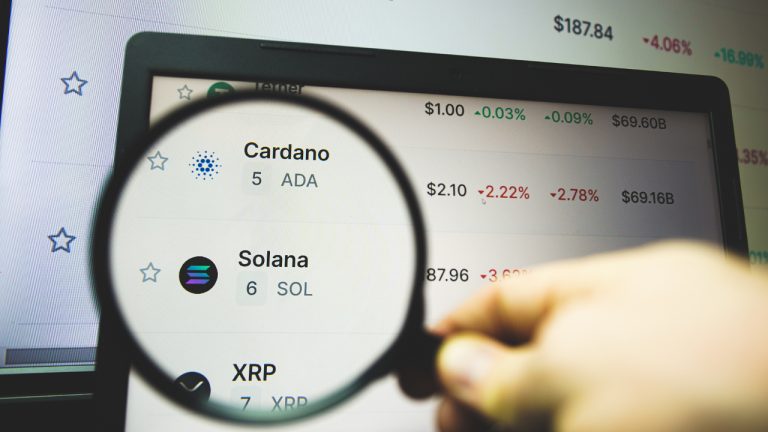
Vaneck, a leading digital asset manager, has recently unveiled a study on the network Solana, providing a wide spectrum of SOL valuation scenarios for the year 2030. Authored by Patrick Bush, the senior investment analyst, of digital assets, and Matthew Sigel, the head of digital assets research, the report dives deep into Solana’s potential, presenting a balanced view from base-case to bearish to bullish prospects.
Vaneck Research Report Offers Solana Valuation Scenarios for 2030
On October 27, 2023, Vaneck published a report on the Solana (SOL) network, exploring various SOL valuation scenarios for the year 2030. The document authored by Bush and Sigel aims to provide a detailed examination of Solana’s potential future, covering a range of possibilities.
The Vaneck study outlines different potential futures for Solana, with predictions ranging from $9.81 to $3,211.28 per SOL by 2030. The forecast considers various market share predictions and revenue estimates across several sectors, acknowledging the unpredictable nature of the crypto asset.
“Solana is vastly more capable than any of its legacy competitors regarding blockchain processing capabilities,” the Vaneck research details. “Parallel to this, but much more importantly, Solana has translated its pioneering spirit into an ecosystem philosophy of risk-taking and techno-optimism.”
Bush and Sigel analyze a scenario where Solana achieves significant user adoption. This part of the report explores Solana’s potential scalability and user adoption, compared to other blockchain technologies.
The report compares Solana with Ethereum, suggesting that SOL could monetize at 20% of ETH’s rate and achieve less than half of ETH’s market share. This perspective considers both the challenges and opportunities that Solana might face.
“In this note, we model a scenario in which Solana is the first blockchain to host an application that onboards 100M+ users,” Bush and Sigel explain. “We assume SOL monetizes at only 20% of ETH’s take rate and achieves less than half of ETH’s market shares due to a fundamental difference in community philosophy.”
The report discusses the importance of technological advancements and network stability for Solana’s future success. It highlights the need for continuous innovation and strong security measures. The Vaneck team also addresses the potential risks and uncertainties associated with Solana, advising a balanced and informed approach when considering this crypto asset.
“Long-term pricing of Solana’s [block space] and how much it costs to utilize Solana is another thorny issue,” the Vaneck researchers state. “The chief problem of a monolithic chain like Solana is that it is difficult to extract value from users and remit that back to token holders.”
The report warns on several occasions and more specifically captions associated with the charts that say, “There may be risks or other factors not accounted for in the scenarios presented that may impede the performance of Solana.” The study further discloses that “Past performance is no guarantee of future results.”
Today, solana (SOL) is the seventh largest crypto asset by market capitalization, and over the last 30 days, it has risen 64.1% against the U.S. dollar. While BTC dominates the $1.3 trillion crypto economy by more than 51% and ETH captures 17%, SOL’s market cap at $13.38 billion equates to 1.026%. However, on October 28, 2023, SOL is down more than 87% lower than its all-time high recorded on November 6, 2021.
What do you think about Vaneck’s latest report on the Solana network and its native token SOL? Share your thoughts and opinions about this subject in the comments section below.
source https://news.bitcoin.com/vaneck-charts-the-course-of-solanas-future-with-2030-valuation-study/
Komentar
Posting Komentar